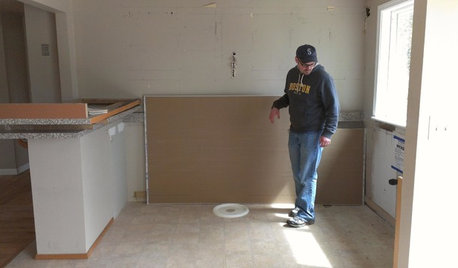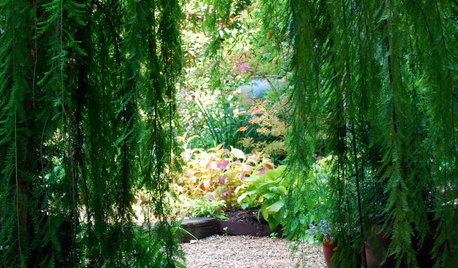compost making process
hesamaf
9 years ago
Related Stories

TASTEMAKERSShop Talk: Peek in on Brandon Morrison's Lamp-Making Process
Get an up-close and personal view of a Los Angeles lighting designer as he crafts one of his artful table lamps
Full Story
GARDENING GUIDESGet on a Composting Kick (Hello, Free Fertilizer!)
Quit shelling out for pricey substitutes that aren’t even as good. Here’s how to give your soil the best while lightening your trash load
Full Story
GARDENING GUIDESHouzz TV: Make a Worm Bin for Rich Soil and Happy Plants
A worm-powered compost bin that can fit under a sink turns food scraps into a powerful amendment for your garden. Here’s how to make one
Full Story
CONTRACTOR TIPSBuilding Permits: The Inspection Process
In Part 5 of our series on home building permits, we explore typical inspection schedules for a variety of project types
Full Story
CONTRACTOR TIPSBuilding Permits: The Submittal Process
In part 2 of our series examining the building permit process, learn what to do and expect as you seek approval for your project
Full Story
KITCHEN DESIGNStylish New Kitchen, Shoestring Budget: See the Process Start to Finish
For less than $13,000 total — and in 34 days — a hardworking family builds a kitchen to be proud of
Full Story
COFFEE WITH AN ARCHITECTHitting the Bars to Explain the Design Process
Simple bar charts and a little math by a seasoned architect give a helpful overview of renovation and new-build proceedings
Full Story
BOOKS'Houses + Origins' Reveals an Architect's Process
How are striking architectural designs born? A new book offers an insightful glimpse
Full Story
LANDSCAPE DESIGNTo Make Your Garden Memorable, Add a Hint of Mystery
An element of mystique — intriguing gates, an interplay of light and shadow, hidden views — can take your garden to the next level
Full Story
LIFE10 Smart Organizing Ideas That Make Life Easier
Rethink where and how you store household basics, from bills to baking supplies, to buy some time and save some headaches
Full Story






lazy_gardens
hesamafOriginal Author
Related Professionals
Arnold Landscape Architects & Landscape Designers · North New Hyde Park Landscape Architects & Landscape Designers · San Juan Landscape Architects & Landscape Designers · Clearlake Landscape Contractors · Dinuba Landscape Contractors · East Patchogue Landscape Contractors · Hickory Hills Landscape Contractors · Kettering Landscape Contractors · Lehigh Acres Landscape Contractors · Palos Heights Landscape Contractors · Beavercreek Decks, Patios & Outdoor Enclosures · Fort Mill Decks, Patios & Outdoor Enclosures · Lansdale Decks, Patios & Outdoor Enclosures · Natick Decks, Patios & Outdoor Enclosures · Schaumburg Decks, Patios & Outdoor Enclosureslazy_gardens
Kimmsr
armoured
Kimmsr
armoured
Kimmsr
toxcrusadr
armoured
toxcrusadr
Lloyd
Laurel Zito
hesamafOriginal Author
FrancoiseFromAix
toxcrusadr
hesamafOriginal Author
toxcrusadr
hesamafOriginal Author